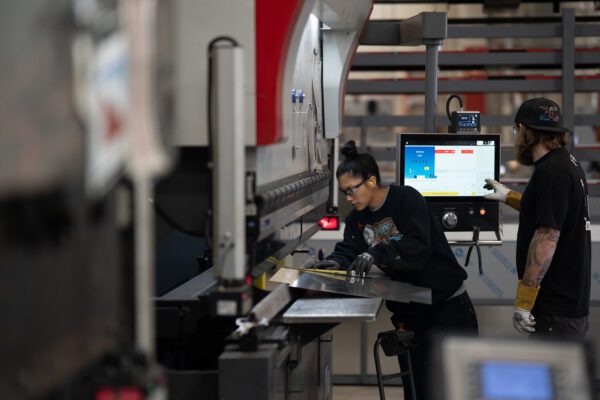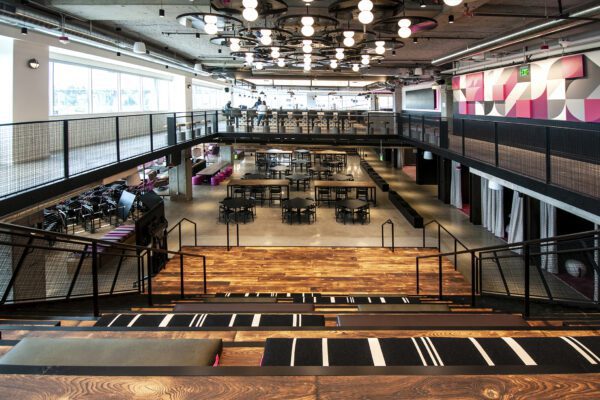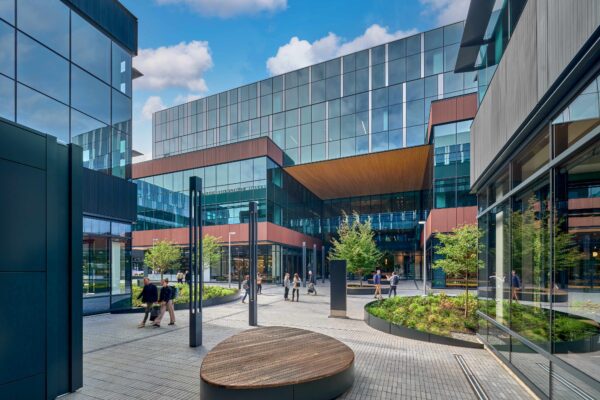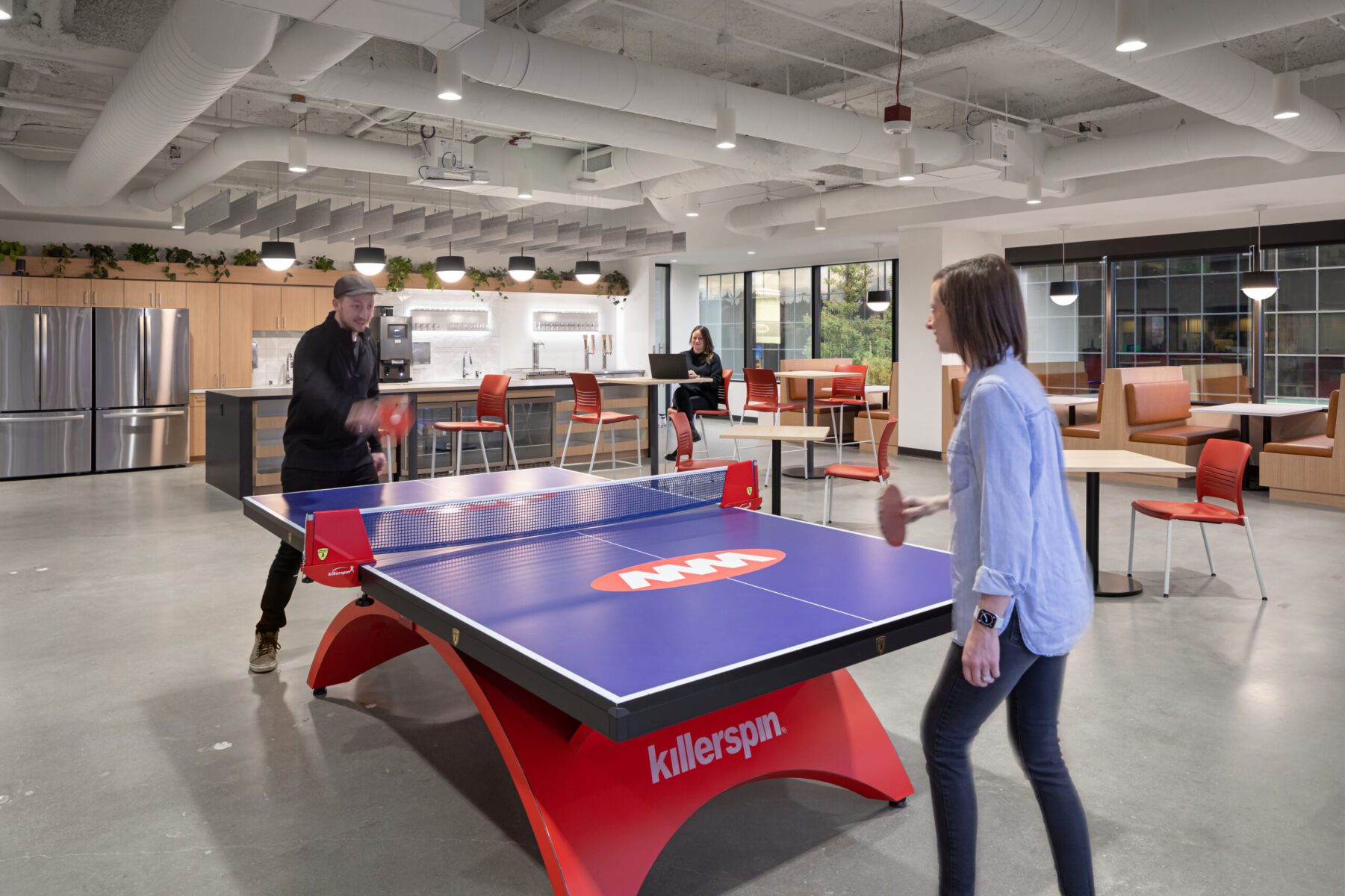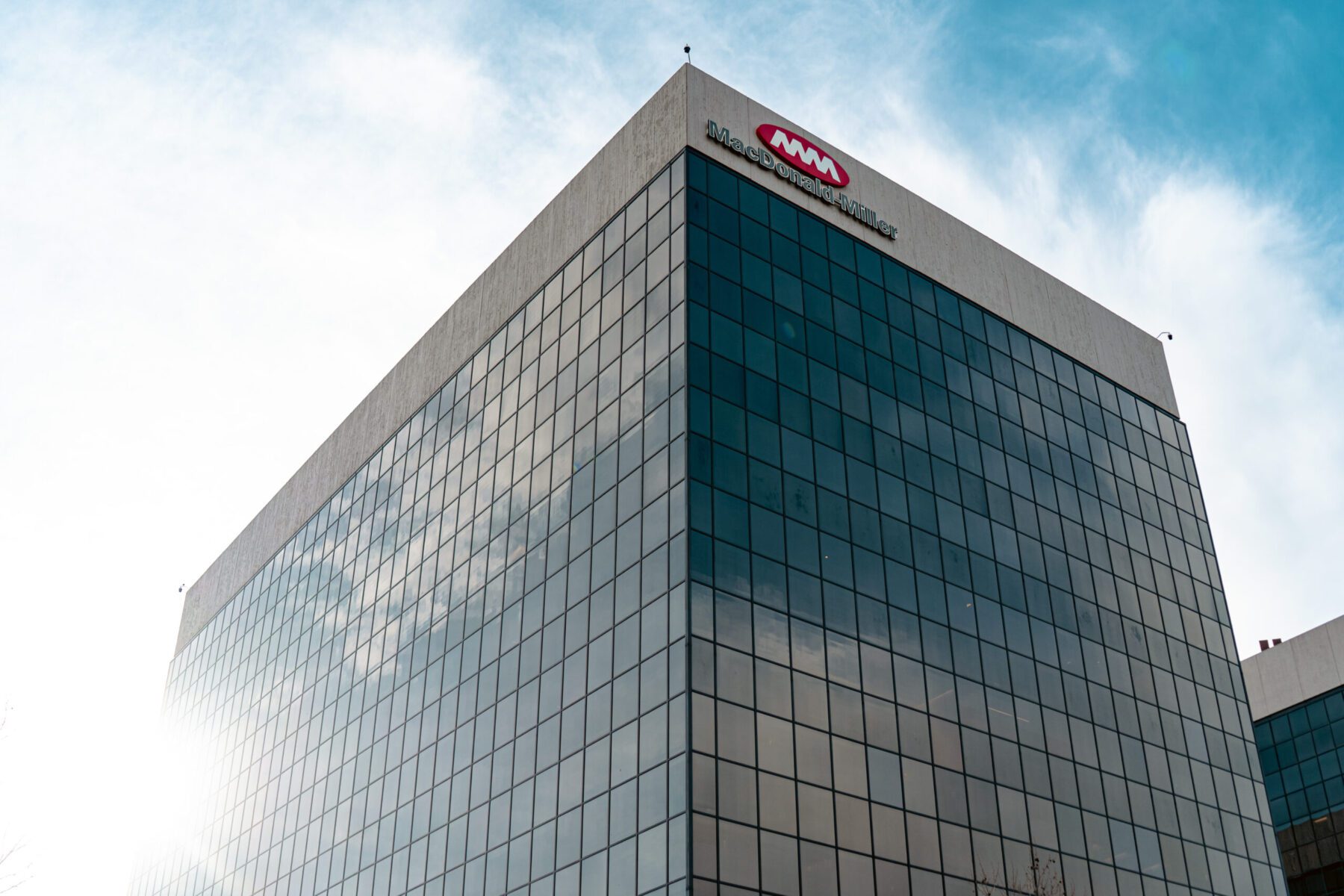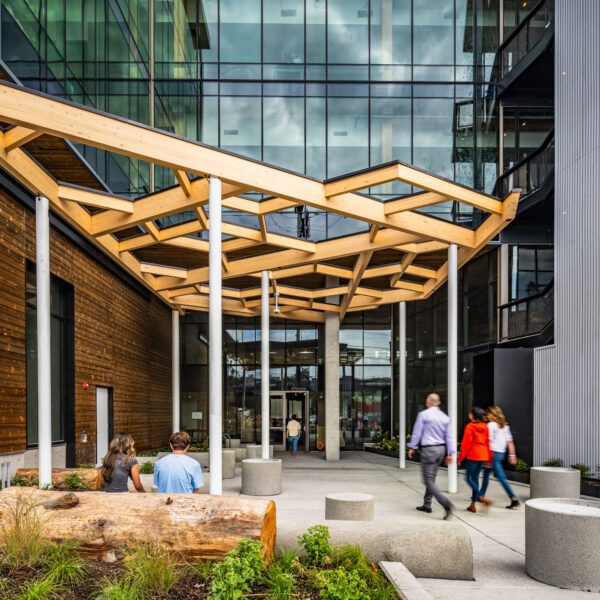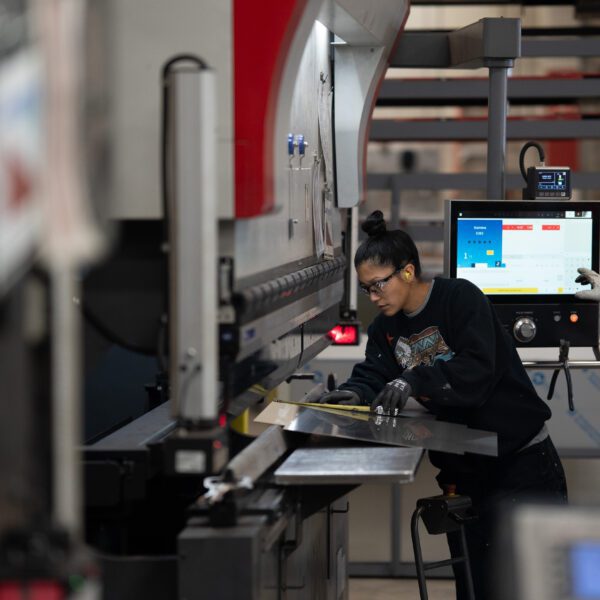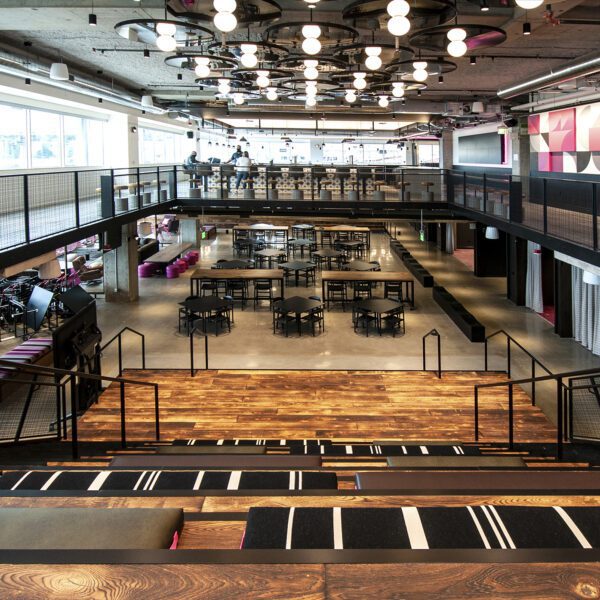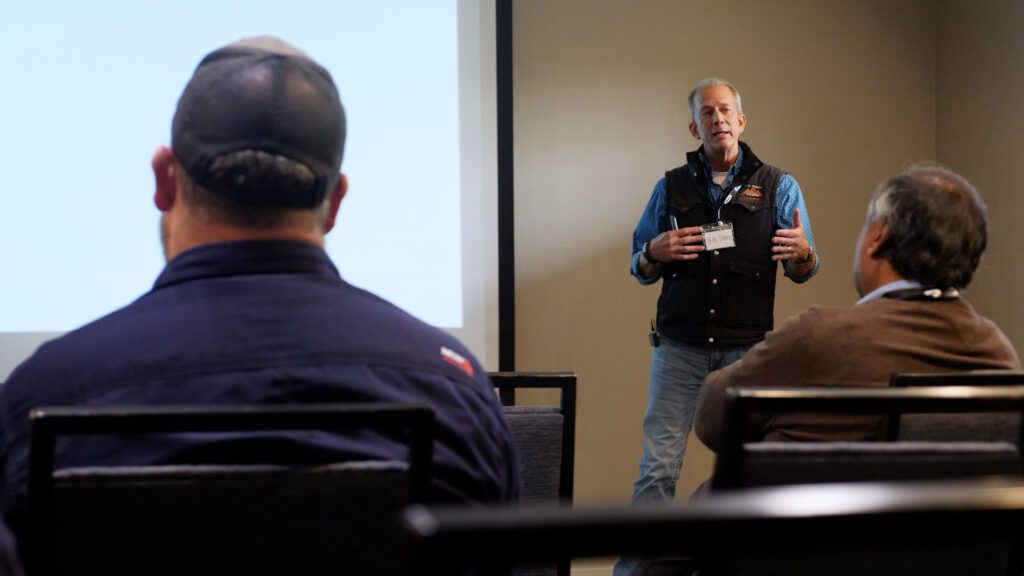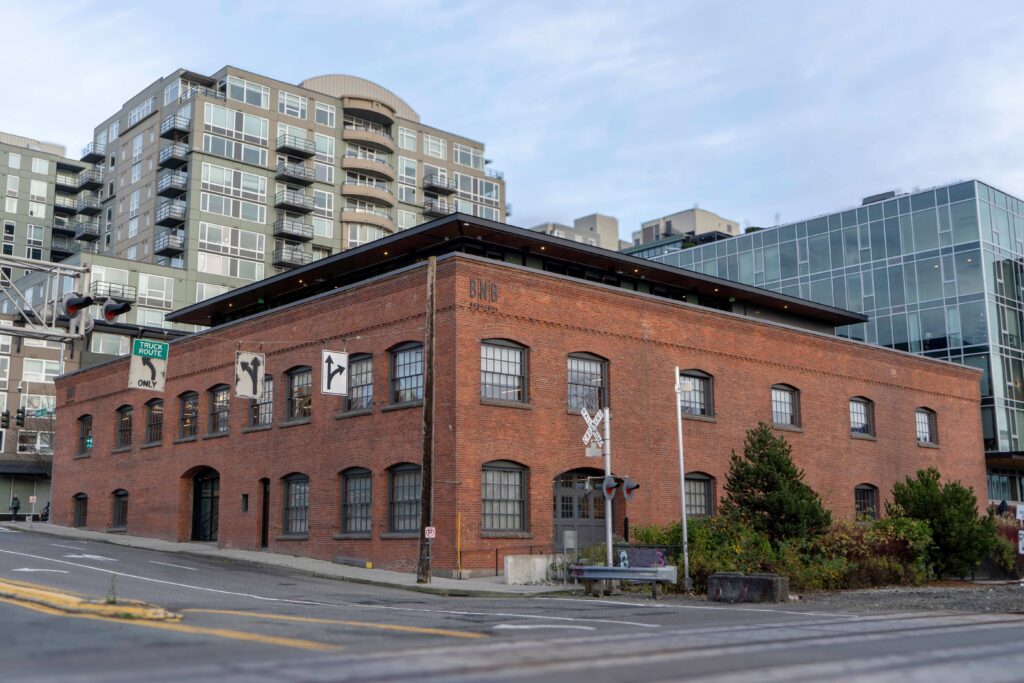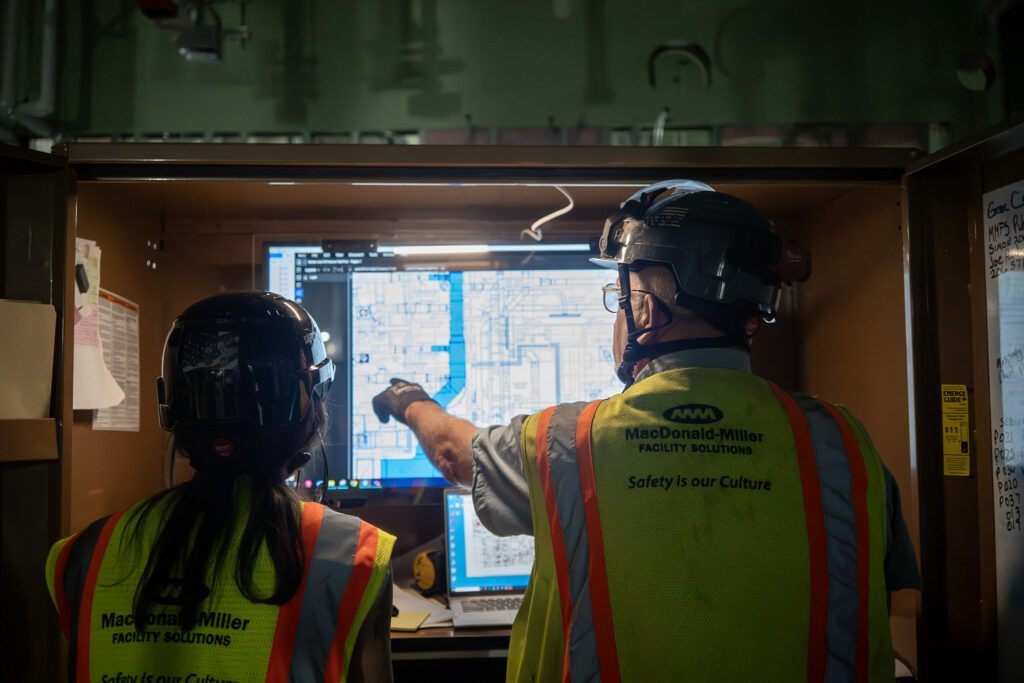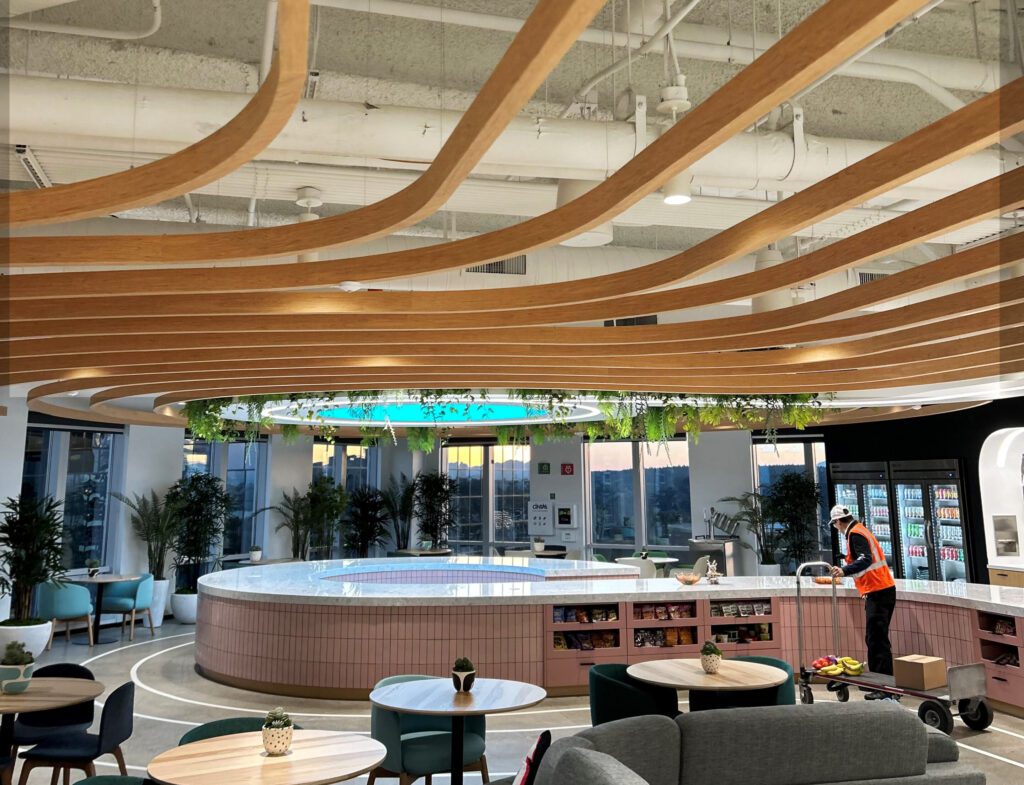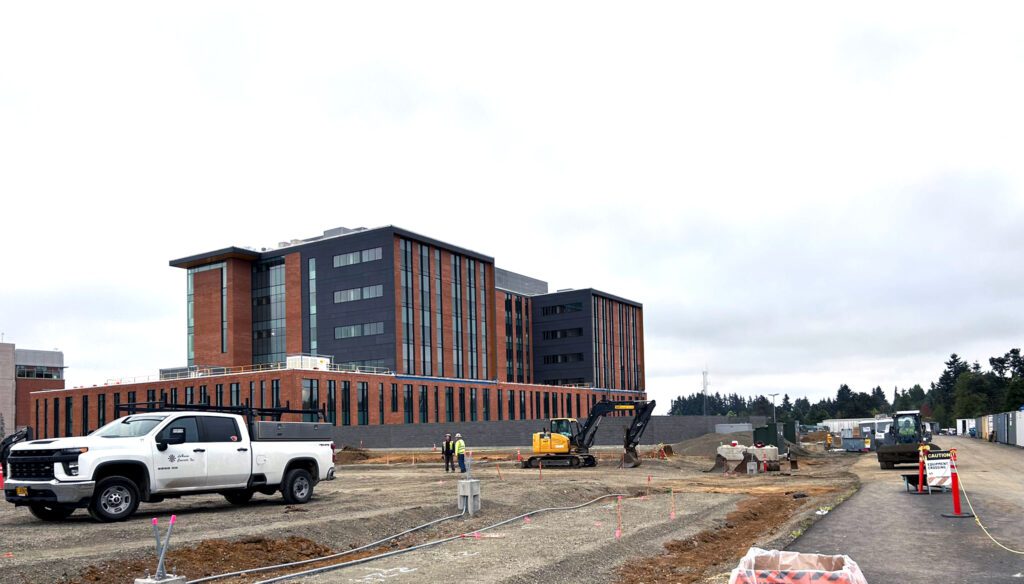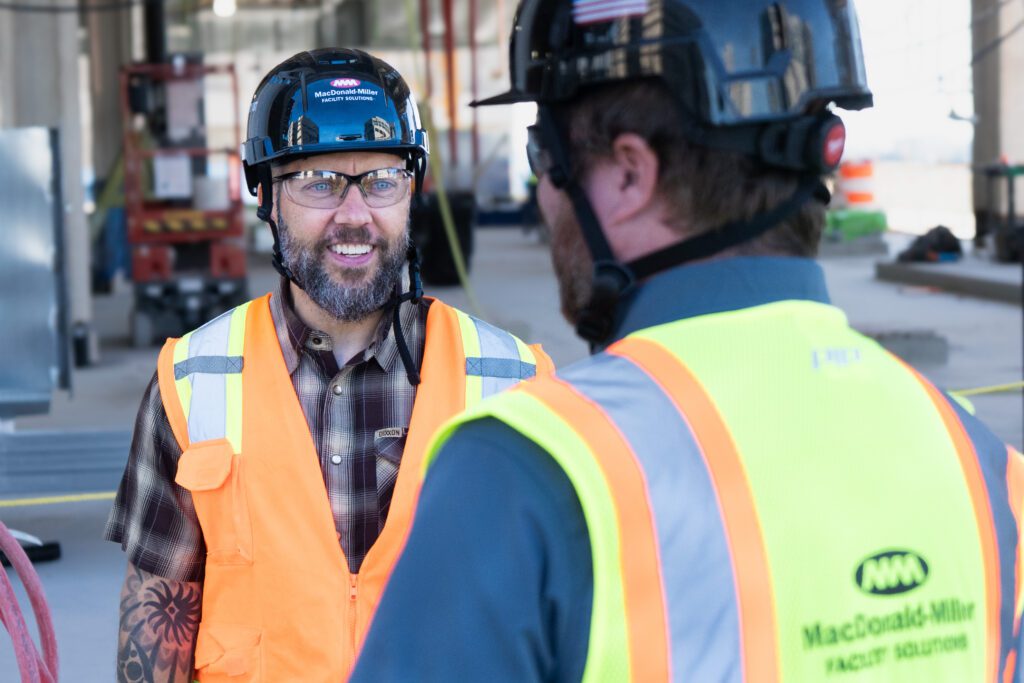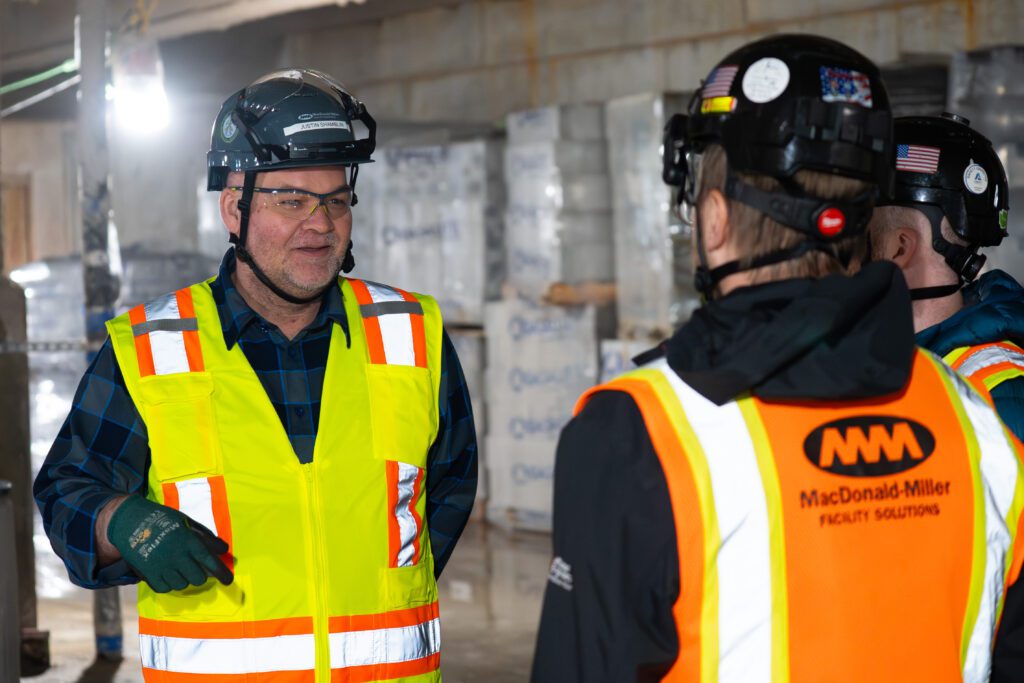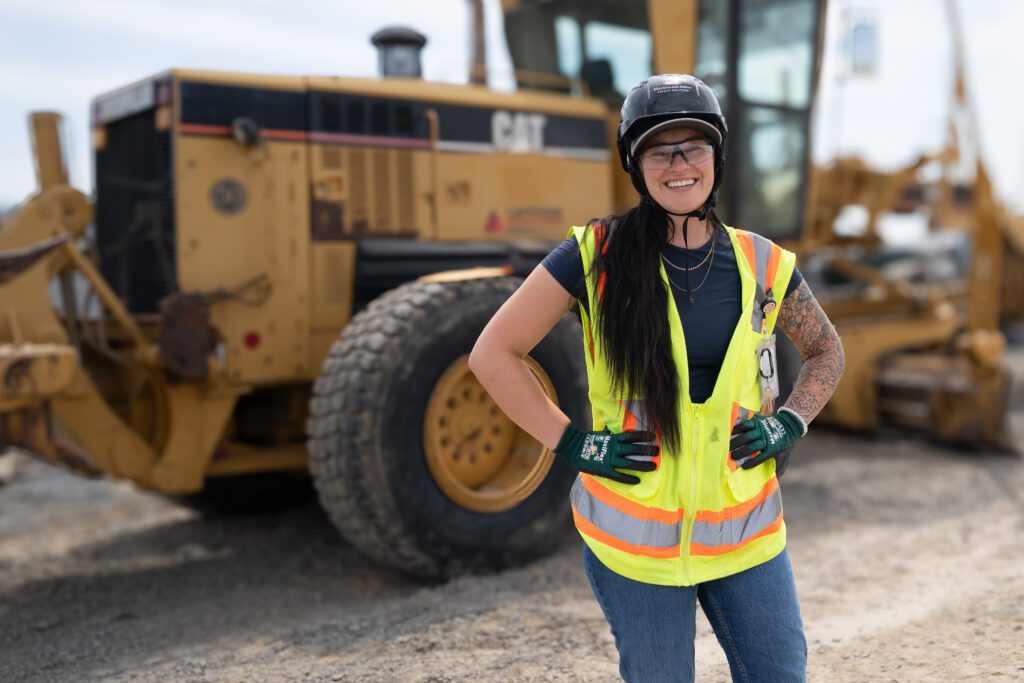Teamwork and training are this contractor’s recipe for success
2020 Best Contractors to Work For Award from Air Conditioning, Heating & Refrigeration News magazine covering residential and commercial contracting:
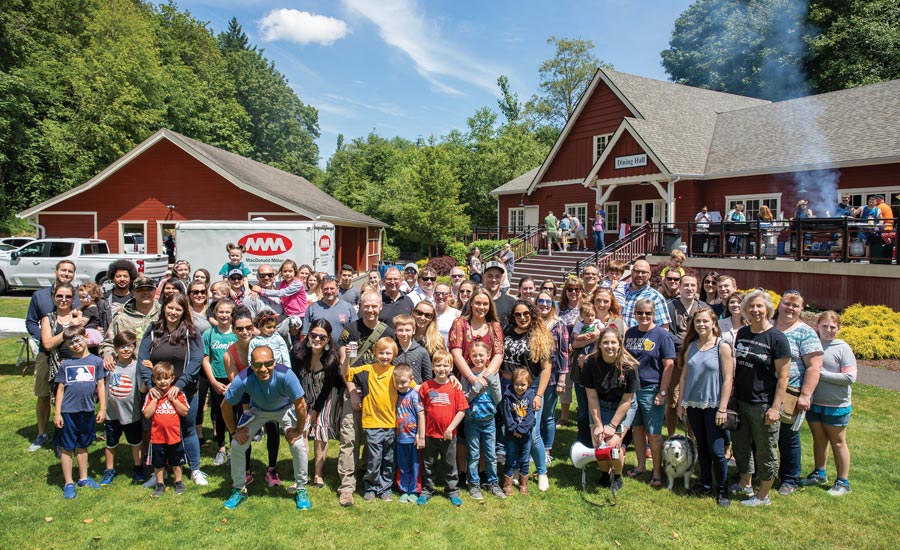
One of the reasons why Gus Simonds likes the mechanical contracting industry so much is that there is no guaranteed recipe for success. As the president of MacDonald-Miller Facility Solutions in Seattle, Washington, he believes that not having a defined recipe leaves a huge opportunity for companies to be creative. Like his.
MacDonald-Miller is a large commercial mechanical contracting firm, with almost 1,300 employees working out of 10 offices located throughout Washington State and Oregon. Even though it’s a good-size company, many employees say that it doesn’t feel that way, thanks to a company culture that encourages not only creativity, but teamwork and training.
As Laura Stogin, a service technician who has worked at the company for four and a half years, noted, “There is a sincere camaraderie here — everybody wants to help everyone. We learn from each other, and we teach each other. There’s no fear of saying, ‘Hey, I don’t understand this, and I’d like to learn more.’ It’s something honorable here, and if you need help, they’ll make sure you get it. It’s all about teamwork — each employee is important, and they want to cultivate your own success within the field and the trade. They’re not just giving broad expectations; they actually facilitate it, which is something I love about working here.”
Transparency and Teamwork
Comments like these warm the heart of Simonds, who has been the president of MacDonald-Miller — affectionately called MacMiller by employees — since 2006. He joined the company in 1989, after a brief stint at Honeywell, and worked his way up through the ranks. After taking the reins of MacMiller 15 years ago, he devoted much of his time and energy to crafting a company culture that is not only transparent in the way it operates but also places a high value on teamwork.

“I always say that my job isn’t any more important than anyone else’s — it’s just a different job description,” he said. “As a mechanical contractor, there are a lot of handoffs, and nothing gets done without 20 people touching it. It’s a team sport, for sure, which is why we need everybody to do their part to make us successful.”
MacMiller is different in that it is neither publicly owned nor family owned; instead, it is owned by the employees. Simonds and the COO each own about 20% of the company, while another 38 key employees hold shares ranging from 1% to 10% of the company. It is a little unusual to have such a large company that does not fall into the category of either being family owned or else part of a big corporation, but Simonds thinks this offers a competitive advantage.
“All those come with dramatically different cultures, but we’re in this neat spot in the middle where we’re privately owned, but we’re not,” said Simonds. “That means we’re not just focused on the short term, like a publicly traded company may be, and we’re not as relaxed as a family-owned company might be. We are very long-term focused, and our management team feels a daily pressure to bring value to the company.”
This healthy pressure to bring value to the company has led Simonds and his management team to create an environment that focuses on creativity and collaboration, where everyone is encouraged to share their opinions, suggestions, and concerns.
“It’s not all about my ideas or the family or the stock market — it’s about collaborating and building a team where everyone has a voice,” said Simonds. “We can take our time and make the decisions or decide to be agile and make a quick play. All the money stays in the business, because we’re all in this thing together.”
This emphasis on collaboration is one of the things that Rory Olson, vice president of service, likes most about MacMiller. He has worked at the company for 15 years, and he enjoys the fact that employees are always welcome to share their ideas with the executive team.
“There isn’t a wall between the leadership of the company and the rest of the employees, which I think is awesome” said Olson. “Even though the company has more than doubled in size since I started here in 2005, we’ve been able to hold on to that small company feel. We are also constantly looking for ways to improve, which is one of the things I really like about working here.”
As part of this continual improvement process, MacMiller offers a great deal of autonomy to all its employees, said Olson, who noted that they are encouraged to innovate and get creative without worrying about making mistakes.
“The goal is to get better, to improve. Not to make you feel bad if you failed,” said Olson. “I think if I wasn’t given as much autonomy as I have here to do those things, I probably would have gone somewhere else. It’s one of many things that makes MacMiller truly unique.”
Seth LaRiviere, service training manager, agrees, noting that MacMiller is very forward-thinking and progressive. He’s been with the company for 18 years, and he appreciates that management values new ideas and is always willing to try new things.
“For example, the position I am in — service training — did not exist prior to me occupying it,” said LaRiviere. “It was an idea presented to management to set us apart from other shops by investing in our techs through training. In my experience, they want employees to be better people by working here — through training, great wages, support, networking, and community involvement.”
Training
Speaking of training, that is another key piece of MacMiller’s recipe for success, but it is not something that came naturally to Simonds. In fact, it took his leadership team to convince him of the need to create a comprehensive training program.
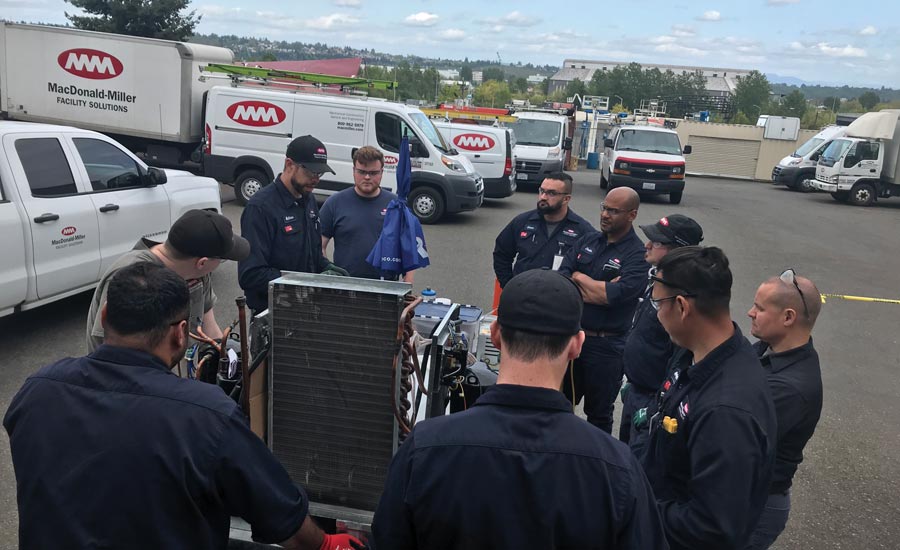
“Training is one of those things that I wasn’t sure if I believed in or not, but I was convinced by everyone in the management team,” he said. “They kept talking about the value of it both in terms of employee retention and our ability to differentiate ourselves in the marketplace, by having better employees deliver a better product. I couldn’t say no to it.”
As a result, the company made a significant investment in a new training program, which included hiring a dedicated person to train the service technicians. Simonds noted that there is an art to service, which includes troubleshooting and being able to effectively work on a variety of HVAC equipment, and that their training program really sets their employees apart from the competition.
“There isn’t another company that’s training their techs the way that we are,” said Simonds. “It’s turned out to be really great, because now we have the ability to send a highly capable technician to every customer’s job site. If we send someone who isn’t quite as good as they could be, the customer ends up paying for it, because it takes longer or takes repeat calls. We find the right technician to go out there and get it fixed the first time. I’ve found that training really has a bunch of benefits, so I’m on board.”
So are his employees, many of whom cited the extensive training program as one of the main reasons why they like working at MacDonald-Miller.
Matt Barnes, a service foreman who has been with the company for nine years, said that the emphasis on employee development through training makes MacMiller a special place to work.
“One thing that makes us unique is having our own full-time service training manager who does in-house programs,” said Barnes. “That helps us develop just a little bit more by keeping up to date on the newest technology and processes. There are also other training opportunities that we can do on our own, like leadership courses, communication, and customer experience, which help develop everyone personally, as well as for the company.”
Stogin added that that she, too, loves the training program, noting that the service manager routinely takes suggestions from employees about what classes to offer.
“We can just shoot him an email and say, ‘Hey, there’s a new piece of equipment or this new technology that we’d like to learn about,’ and a few weeks later, he’s got a class ready for us on it,” she said. “He’ll also ask the apprentices and the journeymen to get involved with teaching the classes. This cements their training, because the best way to learn is to teach a concept to others. That’s a really unique feature of MacMiller.”
No Jerks Allowed
Keeping MacMiller running smoothly requires a large number of employees, so hiring and retaining quality people is of utmost importance to Simonds. Part of the reason why he thinks he’s been successful in this area is that long ago he decided to never lose a valued employee over money.

“I never try to split hairs over pay,” he said. “I want to be a successful company, so we pay our employees at the top — or near the top — of the market. If a competitor tries to recruit our employees, they will have to pay a significant premium in order to hire them away. But beyond pay, if our employees are feeling valued and appreciated and our customers love them, why would they want to go anywhere else?”
To ensure that employees are, indeed, feeling appreciated, Simonds cites another key value at MacMiller: making sure there are no jerks managing employees.
“Your company culture is that second-tier manager level, so the employees reporting to me and the employees reporting to the people who report to me,” he said. “It’s important to have a no-jerk policy in that layer and to make sure everyone treats their employees with respect and as valued professionals. Every once in a while, we’ll get a jerk who is a manager, but they don’t last long. If you’re a good manager, you’ll be here forever, and you’ll be rewarded.”

Ryan Phelps, the Oregon service foreman for the HVAC division, can vouch for the difference that a good manager can make. He’s been with MacMiller for one and a half years, and he said that after 20 years in the industry, he’s happier now than he’s ever been, and one of the reasons for that is his outstanding boss.
“The operations manager I work for is so encouraging,” said Phelps. “He’s really more of a mentor, because he is constantly encouraging me. We discuss ideas together as a team, and we come up with solutions. What really makes him stand out is that he works to help me better myself, and he does it in such a positive way.”
Making sure that MacDonald-Miller is the employer of choice for current and prospective employees takes a lot of time and energy, but Simonds believes he has come up with the winning formula. Which is why his company is on track for one of its best years ever, in spite of the pandemic.
“Mechanical contracting is a hard business, but it can be really rewarding,” he said. “It’s hard because there isn’t an established recipe for it. I think most people thrive on knowing the right way to do things, but for us, it’s cool that there isn’t a right way to do things — there’s a better way. And that’s what we do every day, trying to find a better way.”
Tasking each employee with helping find that ‘better way’ is why so many of those working at MacDonald-Miller have no desire to leave. As Phelps noted, “MacMiller is a large organization with a number of HVAC techs, electricians, and plumbers, and when we encounter a problem, we all work together to solve it. It’s a complex industry as a whole, and no one person can have 100% knowledge about everything. Being able to rely on and work directly with my other teammates to solve these problems is, to me, what makes MacMiller one of the best companies to work for.”
See article here: 2020 Best Contractors to Work For: MacDonald-Miller Facility Solutions LLC

